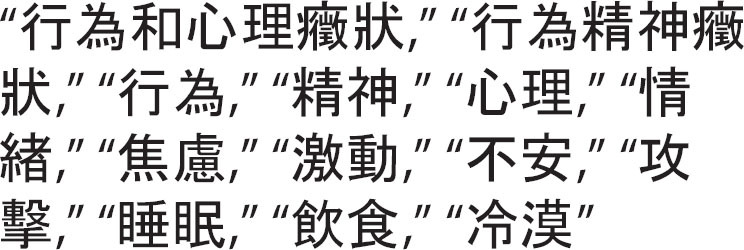Table 1.
PICO model for identification of English and Chinese search terms
| PICO model | Search terms |
||
|---|---|---|---|
| English MeSH | English keywords | Chinese search terms | |
| P (Population) − older persons with dementia | “Dementia,” “frontotemporal dementia,” “dementia, vascular,” “dementia, multi-infarct,” “neurocognitive disorders,” “cognition disorders,” “Alzheimer disease,” “cognitive dysfunction” | “dement*,” “Alzheimer* disease*,” “cognit* impairment*,” “major neurocognitive disorder*,” “neurocognitive disorder*” |
|
|
| |||
| I (Intervention) − aromatherapy | “Aromatherapy,” “plant oils,” “oils, volatile,” “odorants” | “aromatherap*,” “aromacare,” “essential oil*,” “aroma therap*,” “aroma-therap*,” “aroma*,” “plant* oil*” |
|
|
| |||
| C (Comparison) − no active treatment/usual care | − | − | − |
|
| |||
| O (Outcome) − BPSD | “Behavioral symptoms,” “depression,” “depressive disorder,” “mental disorders,” “psychomotor agitation,” “anxiety,” “anxiety disorders,” “psychotic disorders,” “aggression,” “apathy,” “movement disorders,” “sleep wake disorders,” “appetite,” “feeding and eating disorders” | “anxi*,” “behave*,” “BPSD,” “Behave* and psych* symptom* of dement*,” “behave* adj3 symptom*,” “psych* adj3 symptom*,” “neuropsych* adj3 symptom*,” “aggress* behave*,” “aggress*,” “agitat*,” “depress*,” “mental disorders,” “psychosis,” “apathy,” “disinhibit*,” “motor disturb*,” “night-time behave*,” “appetite,” “eat* adj3 problem*” |
|
MeSH, Medical Subject Headings; PICO, Population, Intervention, Comparison, and Outcome.



